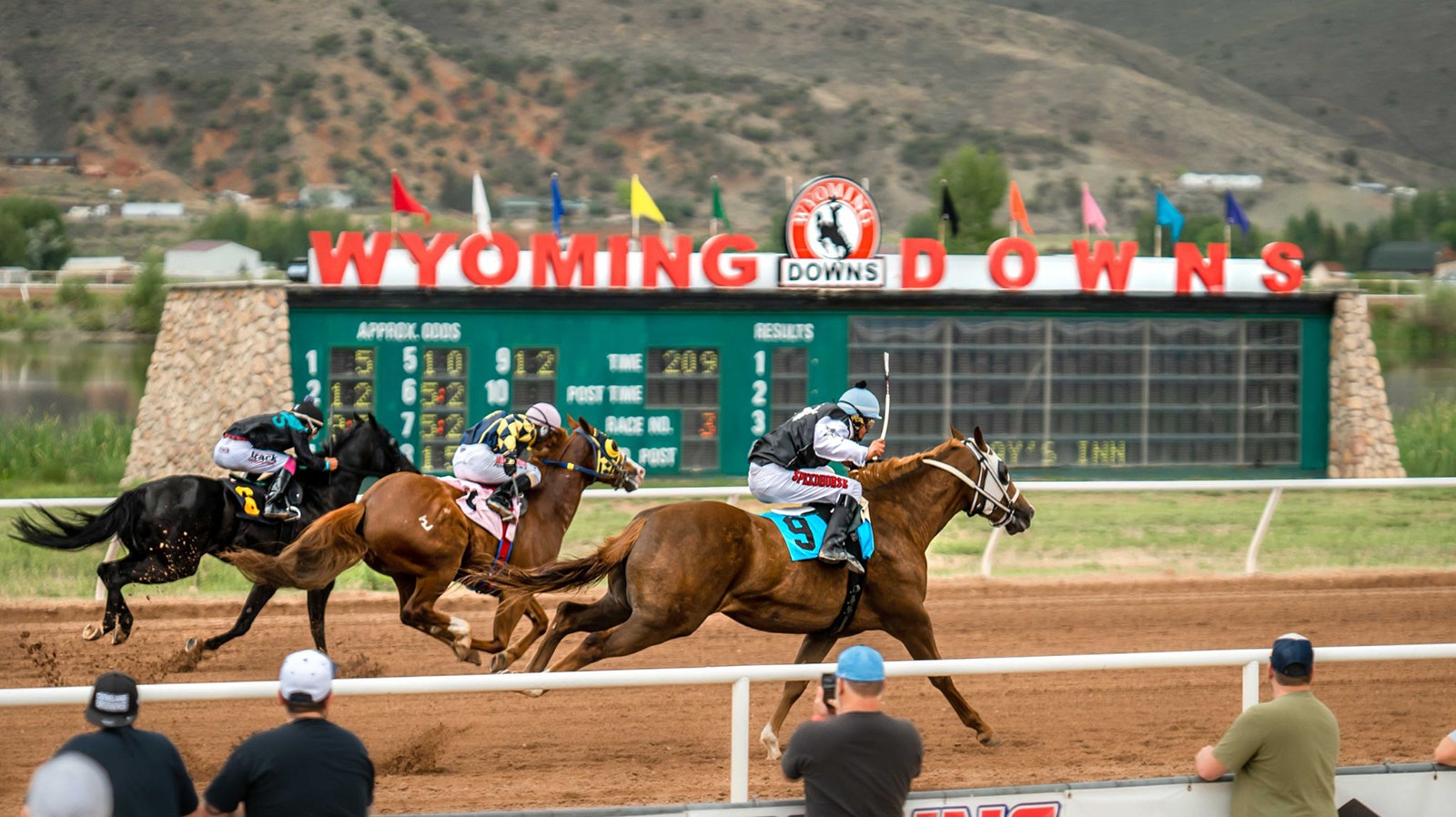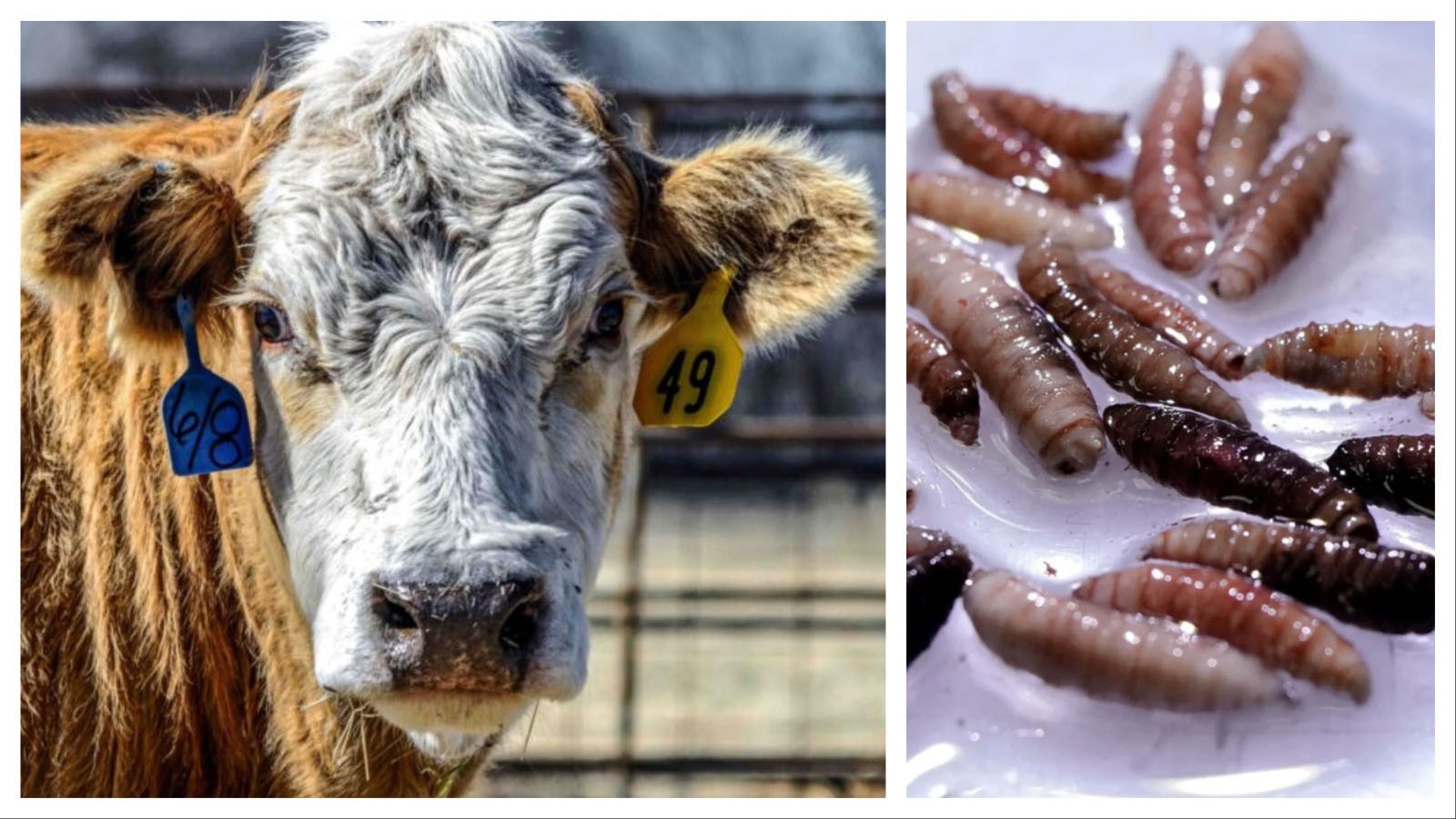At least 10 horses have died while racing at Wyoming racetracks this season, and all but one of those at the Wyoming Downs racetrack in Evanston. The other death was at Energy Downs in Gillette.
The death numbers were part of Wyoming Gaming Commission data obtained through a Freedom of Information Act request that was shared with Cowboy State Daily.
Ten horses also died at Wyoming racing venues during the 2022 season, but there is still more than a month of racing left in this year’s season.
The public records request was made and shared by Horseracing Wrongs, a nonprofit with a mission of eliminating all horse racing in America.
The group’s president, Pat Battuello, said he wants people to look at horse racing as suffering on behalf of the public’s entertainment.
Increase In Fatalities
Over the past three racing seasons, including the still-unfinished current season, there have been 28 horse deaths in the Cowboy State. Horseracing Wrongs presents the data, going back to 2014-2016 when there were seven deaths total, as a huge increase in horses dying at Wyoming racetracks.
But there are a few caveats to that claim.
One is an increase in overall racing. According to the National Horsemen’s Benevolent and Practice Association, in 2015, 32 races were scheduled across four tracks in Wyoming. This season, 52 races were scheduled across three tracks, a nearly 63% increase in racing activity.
Battuello speculated that the lower number of past injuries could simply be a result of poor record keeping.
The fatality statistics do not include horses that are hurt at a track and later brought to different private property to die, or horses that were brought to a recovery center and unsuccessfully treated, if there have been any.
When the Wyoming Gaming Commission met last month, a safety committee was reestablished that had gone dormant for a few years. Battuello said safety hasn’t improved within the horse racing industry and actions like these amount to meaningless gestures.
“That’s just the standard response that they give when they’re under intense scrutiny,” he said.
Eugene Joyce, president of Wyoming Horse Racing LLC, which runs Sweetwater Downs in Rock Springs, said horse safety is paramount for anyone who works in the industry.
“Everyone is passionate about safety,” he told Cowboy State Daily. “It’s the first and foremost concern of any operator.”
Wyoming Reaction
Wyoming Downs had its last day of racing for the year Aug. 6.
Owner Eric Nelson has expressed confidence in the quality of his track to Cowboy State Daily multiple times this summer. He said many of the horses that died at his track likely weren’t ready to race, which is the responsibility of the owners.
The Wyoming Gaming Commission questioned Wyoming Downs leadership about what was causing the cluster of fatal horse incidents at that special meeting in July. At that time, only five horse deaths had been publicly announced.
According to the FOIA request, all 10 deaths had already happened by that meeting. Members of the commission were provided no clues or concrete explanations for why the horses died.
Gaming Commissioner Dennis Boal took a sharp stance at the time, requesting a “working theory” of the conclusions from the state’s report despite the fact it hadn’t yet been released.
“Saying that it’s complicated and difficult to ascertain the reason is not very satisfying when you’re sitting up here,” he said. “I’m a little bit disenchanted that all I’ve been hearing is, ‘We don’t know why it happened, it’s difficult to ascertain.’”
2-Year-Olds
Five of the horses that died were 2-year-olds. In July, Wyoming Downs started prohibiting all rookie 2-year-old horses from racing in reaction to the deaths.
“We had to make a move. We knew we had to do at least something,” said Wyoming Downs General Manager Frank Lamb.
Other improvements were made to the track surface and an extra veterinarian was added for pre-race inspection by the state.
Joyce said investing in the right equipment and properly maintaining a racetrack is critical for thehorses’ safety.
“It’s labor intensive,” he said. “You have to have the right skill set and knowledge to make sure you do everything you can to make it as safe as possible for the horses.”
Battuello downplayed the significance of the racing surface and said 2-year-old horses are not mature enough to race, and said he doesn’t expect the industry to stop racing them anytime soon.
“That’s the main reason I say this would never end is because the horse industry would never wait until a horse is 5 or 6 to begin training and racing, it’s cost prohibitive,” he said, adding that’s when a horse starts to mature. “The killing will continue at the same rate.”
Range Of Injuries
During the July Gaming Commission meeting, Lamb claimed that only 2-year-olds had died at his track this summer. The records request shows that four other horses of different ages had already died by that time.
The variety of injuries these horses experienced ranged widely.
Four died from fractured shoulders, while others had injuries like a fractured cannon, broken back, fractured fetlock and fractured front carpus. Another suffered a head injury when hitting its head on a gate.
Cowboy State Daily reached out to four members of the Gaming Commission about the report,but none responded. Gaming Commission Executive Director Charles Moore was out of the office and unavailable to comment.
Dangerous Sport
Joyce said there are always dangers and the risk of death in horse racing and that “(my) heart is in my mouth” after each race starts.
He said the industry average for horse racing deaths is about three per 1,000 horses, a statistic Sweetwater Downs has almost always stayed below.
“The owners have been working their tails off to get these numbers down,” he said.
To Joyce, the relationship between a horse and its owner is a “compact” of symbiotic benefit. He believes wild horses have much rougher lives than those that race.
“We take care of you, love you, feed you, and in return you do something we ask,” Joyce said.
How Is It Funded?
In 2022, the Wyoming Pari-Mutuel Commission was granted a $22 million budget for the upcoming biennium, with $10.9 million of this specifically granted toward the Wyoming Breeders Award fund.
Live horse racing is profit generating in Wyoming unlike most other tracks across America. The commission is self-funded and derives no money from the general fund when considering the money it contributes back to the state through licensing and wagering.
“It has a $150 million economic impact,” Joyce said.
Richest On Record
Horse racing was in a dire state in Wyoming a little more than a decade ago, with no races held in 2010 and only four days of racing held each of the next two years.
But the passage of House Bill 25 Enrolled Act 46 in 2013 allowed for historic race wagering in Wyoming, a significant boost to the horse racing industry with off-track pari-mutuel betting sites legalized throughout the state.
A Gaming Commission press release released last week reports that Wyoming Downs closed its 2023 race season with the richest horse race in Wyoming history.
The $200,000 Wyoming Quarter Horse Futurity was held before a crowd of approximately 2,800 people, featuring a closing day handle that was the highest in many decades at $180,000.
The 2023 Wyoming Downs purses came in at a historic high of $1.7 million.
“It's hard to beat a quadruple threat like we had this year: the richest race, the highest seasonal purse the largest crowd and then a closing day with Wyoming's highest handle in nearly 40 years,” Lamb said in the press release.
Nelson predicted another record-breaking year in 2024 with a more than $2 million purse.
“Things keep getting better and better for horsemen and fans,” he said.
No mention was made of the horse deaths in the press release.
Leo Wolfson can be reached at leo@cowboystatedaily.com.





